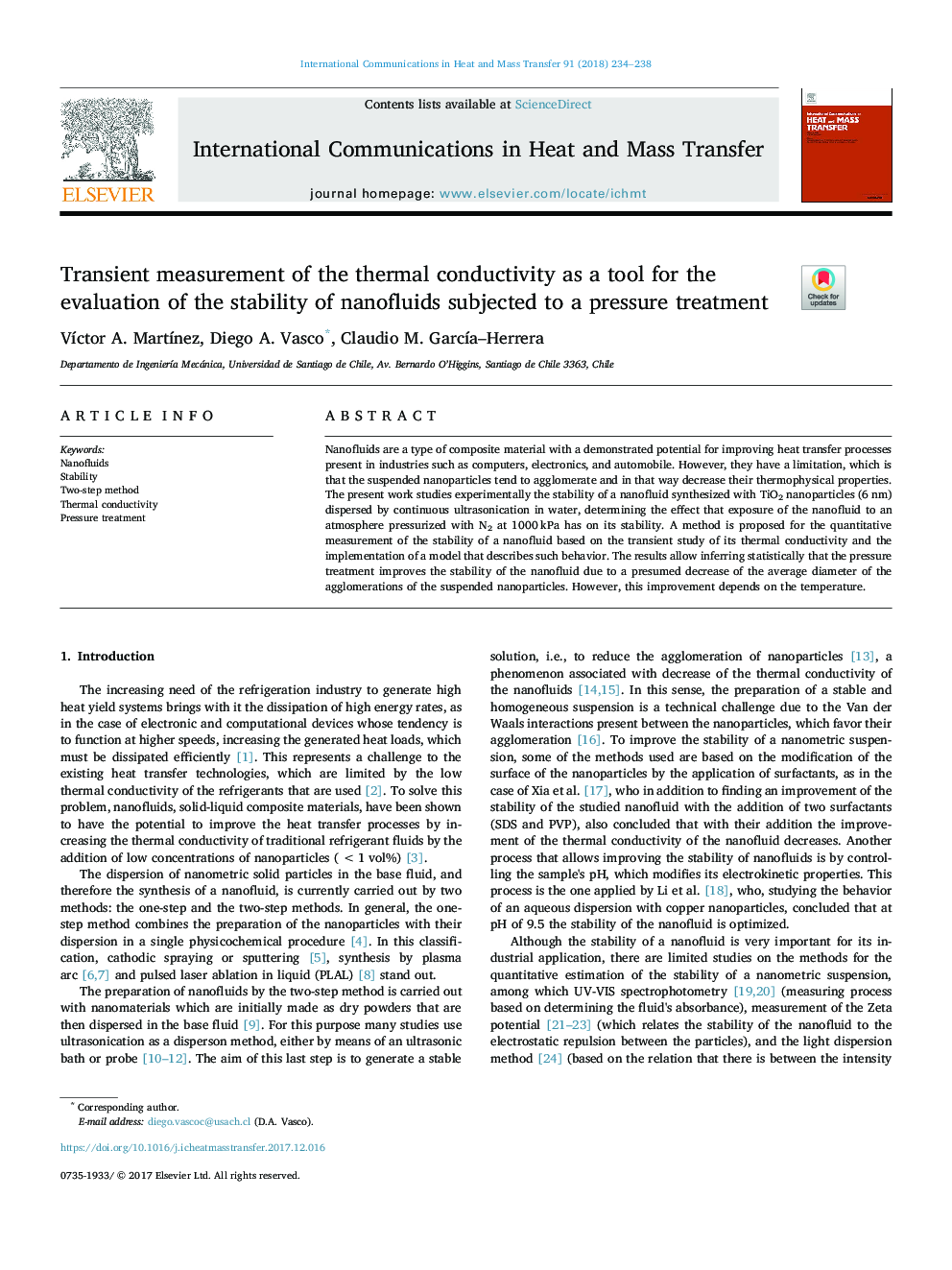| Article ID | Journal | Published Year | Pages | File Type |
|---|---|---|---|---|
| 7053093 | International Communications in Heat and Mass Transfer | 2018 | 5 Pages |
Abstract
Nanofluids are a type of composite material with a demonstrated potential for improving heat transfer processes present in industries such as computers, electronics, and automobile. However, they have a limitation, which is that the suspended nanoparticles tend to agglomerate and in that way decrease their thermophysical properties. The present work studies experimentally the stability of a nanofluid synthesized with TiO2 nanoparticles (6Â nm) dispersed by continuous ultrasonication in water, determining the effect that exposure of the nanofluid to an atmosphere pressurized with N2 at 1000Â kPa has on its stability. A method is proposed for the quantitative measurement of the stability of a nanofluid based on the transient study of its thermal conductivity and the implementation of a model that describes such behavior. The results allow inferring statistically that the pressure treatment improves the stability of the nanofluid due to a presumed decrease of the average diameter of the agglomerations of the suspended nanoparticles. However, this improvement depends on the temperature.
Related Topics
Physical Sciences and Engineering
Chemical Engineering
Fluid Flow and Transfer Processes
Authors
VÃctor A. MartÃnez, Diego A. Vasco, Claudio M. GarcÃa-Herrera,
